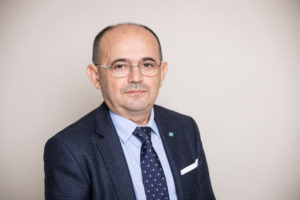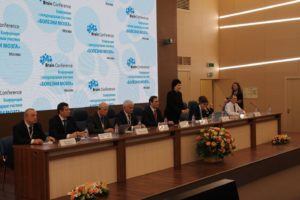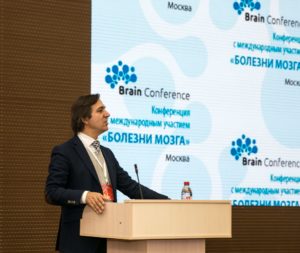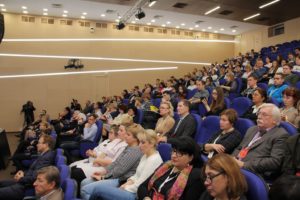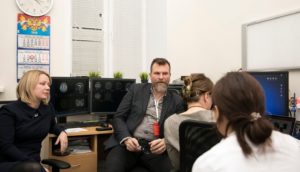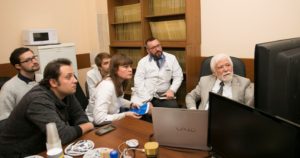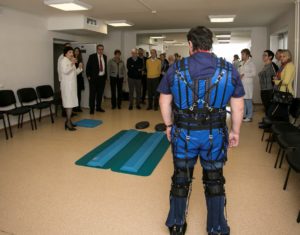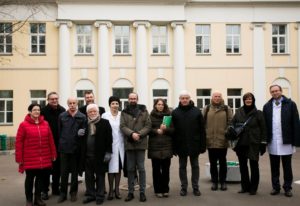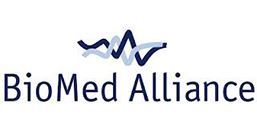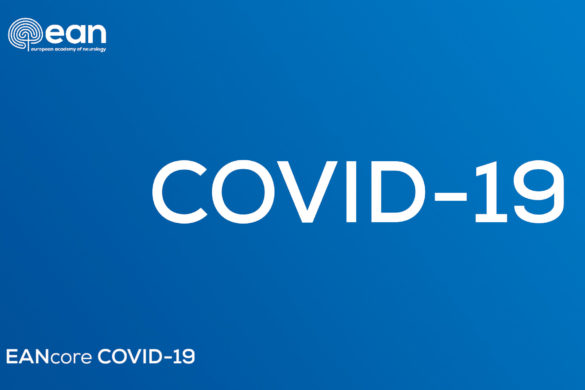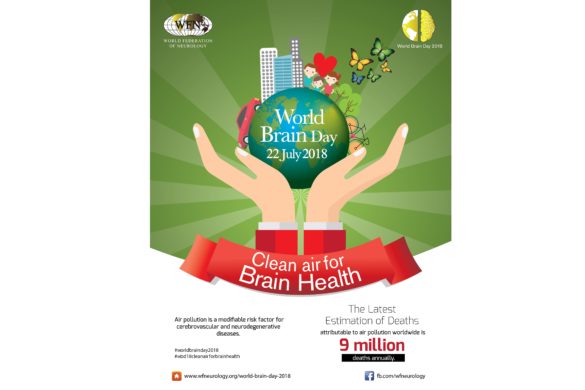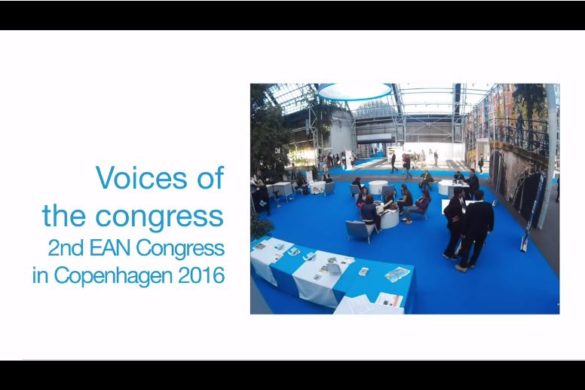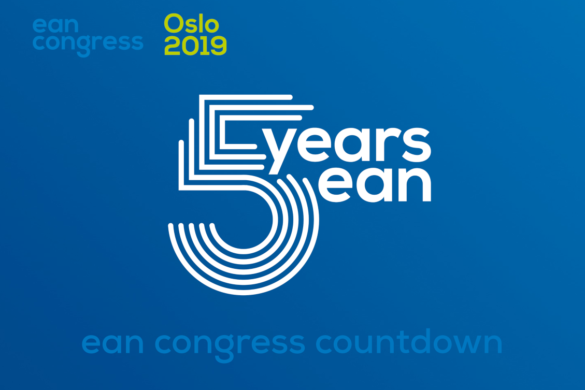by Professor Dafin Mureşanu
Specialists in neurology and psychiatry from Moscow and many regions of Russia and eminent international speakers gathered in Moscow for a multidisciplinary conference on “Advances In Neuroscience And New Strategies For Preventing And Treating Brain Diseases“. Prof. Eugene Gusev and Prof. Alla Guekht, the organizers from the All-Russian Society of Neurologists, an EAN member society, were supported in this endeavor by the Russian Ministry of Health and the Healthcare Department of Moscow.
A significant event during the opening ceremony was the welcome address from the Head of the WHO European Office for The Prevention And Control Of Noncommunicable Diseases in Moscow, Joao Breda.
The conference was hosted by the large multidisciplinary Buyanov City Clinical Hospital, which allowed the guests to get acquainted with the contemporary organization and high standards of healthcare in Moscow. Over 400 doctors from Moscow and 16 regions of the Russian Federation, from Kazakhstan, Kyrgyzstan and Tajikistan attended the conference. A conference book was published and registered with an ISBN number.
The first day of the conference started with the session “Brain diseases: from bench to bedside”, with the excellent lectures by Ettore Beghi (Italy), Didier Leys (France), Marianne de Visser (The Netherlands), Federico Vigevano (Italy), Philippe Ryvlin (Switzerland), Eugene Gusev and Alla Guekht (Russia) and Natalia Gulyaeva (Russia). In the afternoon was a session on “Cerebrovascular diseases and neuro-psychiaty”. Andrew Farrall (UK) and Dafin Mureşanu (Romania) as well as specialists from the leading Moscow centers, including the Buyanov hospital and Moscow Research and Clinical Center for Neuropsychiatry held superb presentations during the following session on:
A session on “Epilepsy: advances in diagnostics and treatment” opened the second conference day with outstanding lectures presented by the international faculty: Sándor Beniczky (Denmark), Edouard Hirsch (France), Max Hilz (Germany), Thanos Kovanis (Greece), Reetta Kälviäinen (Finland) and the leading Russian specialists: V.V. Krylov and S.I. Trifonov, V.A. Karlov and A.V. Lebedeva. Two more sessions took place during the second day, including “Translational studies and multidisciplinary strategies in brain diseases” with great talks by Wolfgang Grisold (Austria) and Aleksander Shpak (Russia), as well as the very interesting session on Autoimmune disorders and diseases of the peripheral nervous system. Both conference days were ended with interactive video-sessions and case discussions on epilepsy and neuro-oncology, which attracted a multidisciplinary array of specialists in neurology, neurosurgery, rehabilitation, neurophysiology and neuropsychiatry.
Another important post-conference event took place during the following two days, when the eminent international faculty, as members of the International Advisory Board, discussed with Prof. Guekht and specialists from the Moscow Research and Clinical Center for Neuropsychiatry ongoing and completed research projects. Many of these projects were made in collaboration between specialists from the Moscow center and the leading European and US clinics.
Young specialists presented their studies in a number of fields in both neurological diseases and mental disorders, including epilepsy, post-stroke rehabilitation, cognitive decline, neuropathic pain, anxiety, major depression and suicidal ideation. A large part of the meeting was devoted to review of clinical studies and interesting cases in small discussion groups, allowing for in-depth assessment and both planning and continuing collaboration.
A visit to the clinic allowed the faculty to meet the highly professional staff and appreciate the up-to-date level of the clinical and research facilities of the Moscow Research and Clinical Center for Neuropsychiatry, including the comfortable wards, well-equipped neuroimaging and neurophysiology laboratories, neurorehabilitation units and bio-feedback lab. Overall, this meeting was extremely well integrated with the conference program, allowing both a learning experience for younger doctors and researchers, and an opportunity for the faculty from global neurological institutions to propagate the spirit of advocacy and education in neurology.
The well-planned social program and cultural sightseeing, which were integrated with the scientific events, made the conference overall a special experience.

